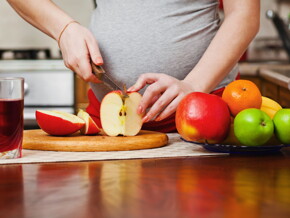
Folic Acid: A Pre-Pregnancy Must-have
Even when you’re just planning to get pregnant, there is one nutrient that is a big must for you to take or include in your daily diet --- folic acid, also known as Vitamin B9 or folate.
Did you know that folic acid already plays a critical role in your body during the first trimester of pregnancy? Folate helps form your baby’s nervous system, ensuring that it functions properly. It is also key in the development of cells and the production of red blood cells.
It is highly recommended that you start increasing your consumption of folic acid before pregnancy. Your folic acid requirements increase from the time your baby is conceived, as your uterus, blood and maternal tissue expand. The need for folate will remain high throughout your entire pregnancy as the fetus grows.
This is why all women of childbearing age, especially those wishing to have a baby, are advised to monitor their folic acid intake so that they will have sufficient reserves of this all-important nutrient once they become pregnant.
What to eat when pregnant
The recommended folic acid amounts to 400 micrograms (mcg) per day for a pregnant woman. Here is a list to help meet your daily requirement of folic acid for pregnancy:
Vegetables:
- 1 cup Lettuce = 40 mcg
- 1 cup Spinach = 100 mcg
- ½ cup Mustard greens (dahon ng mustasa) = 90 mcg
- ½ cup Okra = 135 mcg
- 1 big Corncob = 55 mcg
- ½ cup cooked Kidney beans = 115 mcg
- ½ cup Peanuts = 105.9 mcg
Fruit:
- 1 cup fresh Orange juice = 80 mcg
- 1 Avocado = 162.8 mcg
- 1 medium Banana = 23.6 mcg
Helpful tips on how to load up on folate without even trying
- Get your daily dose of folic acid by eating some organ meats (papaitan, lengua), a plate of green vegetables, some green salad and two or three pieces of fruit, especially citrus fruit.
- Include a large plate of legumes (munggo, red beans) and/or cereals in your menu several times a week, along with eggs and cheese.
- During a pre-conception check-up with your doctor, ask about a folic acid supplement that you can take weeks before you get pregnant and even for some weeks after during the first trimester of pregnancy.
From the NESTLÉ Global Archive co-written with RND REINA BORLAZA




























